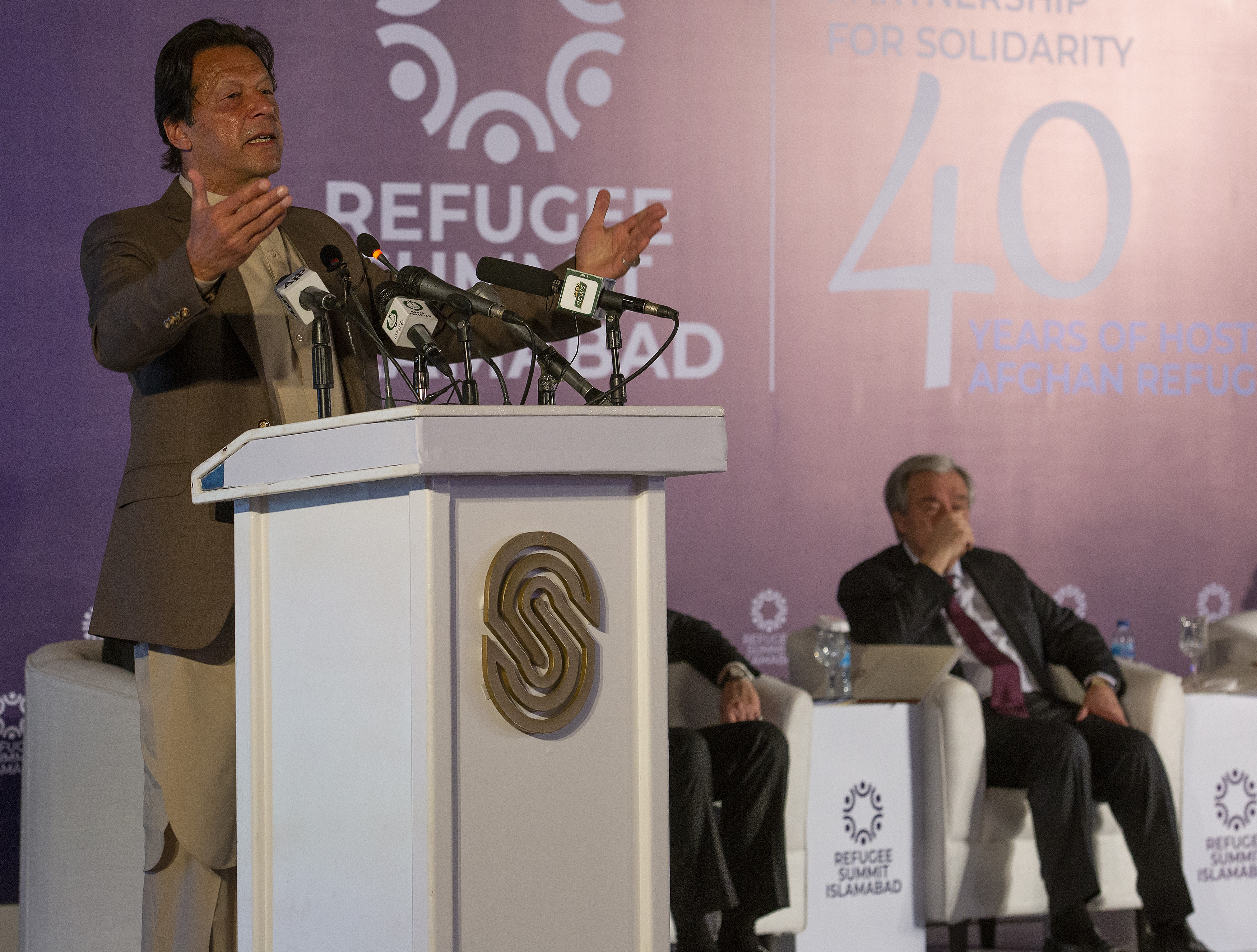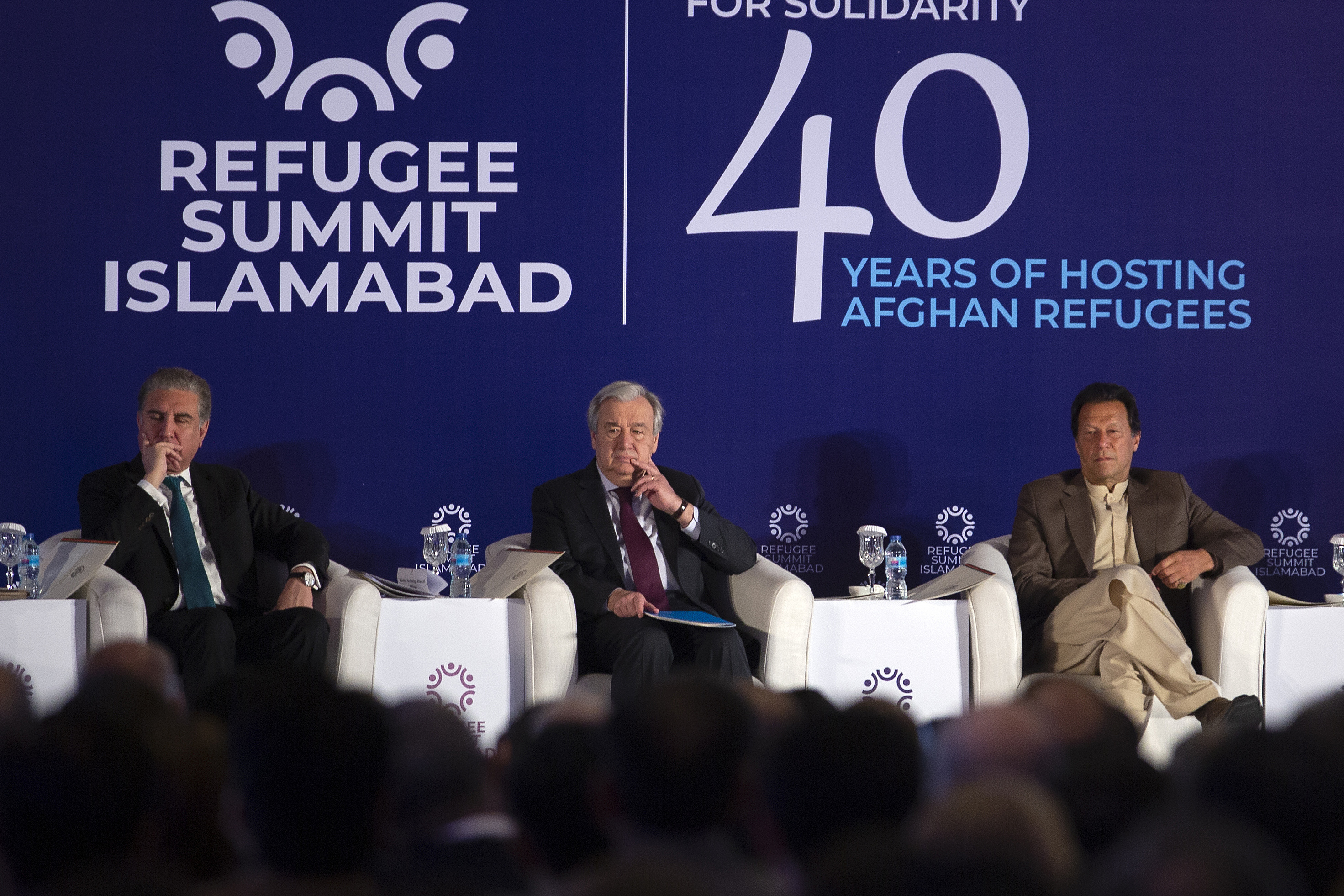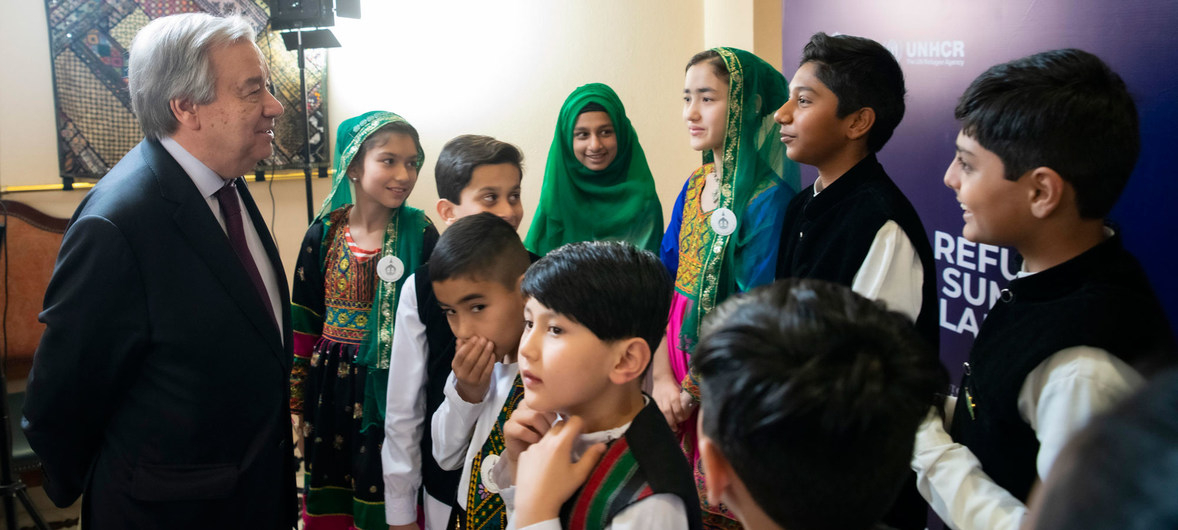Pakistani Prime Minister Imran Khan insisted Monday that his country is no longer a militant safe haven, and said his administration fully supports the Afghan peace process.
Khan's comments come as the U.S. and the Taliban appear on the brink of a deal that would see U.S. forces begin to pull out of Afghanistan.
Read more:
Taliban and U.S. edge closer to 'reduction of violence' deal
Is peace in Afghanistan on the horizon? The peace process examined
In return, the Taliban would enter talks with the Afghan government, stick to various security guarantees and work toward an eventual, comprehensive ceasefire.
"I can tell you that there are no safe havens here," Khan said at a conference in the capital Islamabad.

Pakistani Prime Minister Imran Khan addresses the Refugee Summit in Islamabad, Pakistan, February 17, 2020. /AP Photo
Pakistani Prime Minister Imran Khan addresses the Refugee Summit in Islamabad, Pakistan, February 17, 2020. /AP Photo
"Whatever the situation might have been in the past, right now, I can tell you... there is one thing we want: peace in Afghanistan."
Khan's comments came after Sarwar Danish, Afghanistan's second vice president, accused Pakistan of allowing the Taliban to recruit new fighters from Afghan refugee camps in Pakistan.
Khan was addressing a conference marking 40 years of hosting Afghan refugees in his country.
While Pakistan cannot "completely guarantee" that no Taliban are hiding among the estimated 2.7 million Afghans living in Pakistan, Khan said his government had done all it can to prevent attacks in Afghanistan, including by building a border fence.

UN Secretary-General Antonio Guterres (C) attends Refugee Summit with Pakistani Foreign Minister Shah Mahmood Qureshi and Prime Minister Imran Khan (R) in Islamabad, Pakistan, February 17, 2020. /AP Photo
UN Secretary-General Antonio Guterres (C) attends Refugee Summit with Pakistani Foreign Minister Shah Mahmood Qureshi and Prime Minister Imran Khan (R) in Islamabad, Pakistan, February 17, 2020. /AP Photo
U.S. peace envoy Zalmay Khalilzad, who has for more than a year led talks between the Taliban and Washington, also attended the conference. He said he was "cautiously optimistic" about progress toward an eventual deal.
The U.S. has "commitments from the Talibs on security issues," he said.
The Taliban, Afghanistan's security forces and the U.S. are supposed to be launching a seven-day "reduction in violence", officials announced last week. The move is part of a confidence-building measure ahead of the announcement of a fuller deal.
But bloodshed continued over the weekend, including a Taliban attack in Kunduz province.

UN Secretary General Antonio Guterres (L) speaks to young people in Islamabad during a social media moment on the margins of the International Conference on 40 Years of Hosting Afghan Refugees in Pakistan, February 17, 2020. /UN Photo
UN Secretary General Antonio Guterres (L) speaks to young people in Islamabad during a social media moment on the margins of the International Conference on 40 Years of Hosting Afghan Refugees in Pakistan, February 17, 2020. /UN Photo
Guterres: World must 'step up,' match Pakistan's compassion for refugees
UN Secretary-General Antonio Guterres, who is on a three-day visit to Pakistan, credited the nation for supporting Afghan refugees.
"Working towards solutions for the Afghan people is not just a sign of solidarity; it is in the world's best interest," Guterres spoke Monday at an international conference in Islamabad.
"For 40 years, the people of Afghanistan have faced successive crises, for 40 years, the people of Pakistan have responded with solidarity," the UN chief said, urging the world to "do everything possible" to achieve peace in Afghanistan.
"We do not have the right to miss this opportunity. No Afghan will forgive us if this opportunity is missed," he added.
Alongside with the UN chief, Filippo Grandi, the UN High Commissioner for Refugees (UNHCR), which jointly convened the conference, said Pakistan and Iran had been with Afghan refugees through "bitter times of hardship and loss, renewed conflict and uncertainty."
"And through years of efforts to rebuild a fractured nation and secure the peaceful future that the people of Afghanistan deserve," he added.
(With input from agencies)